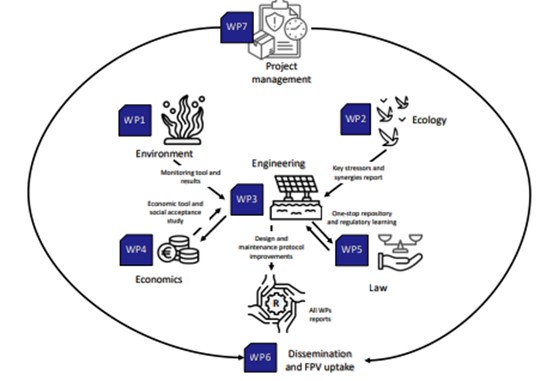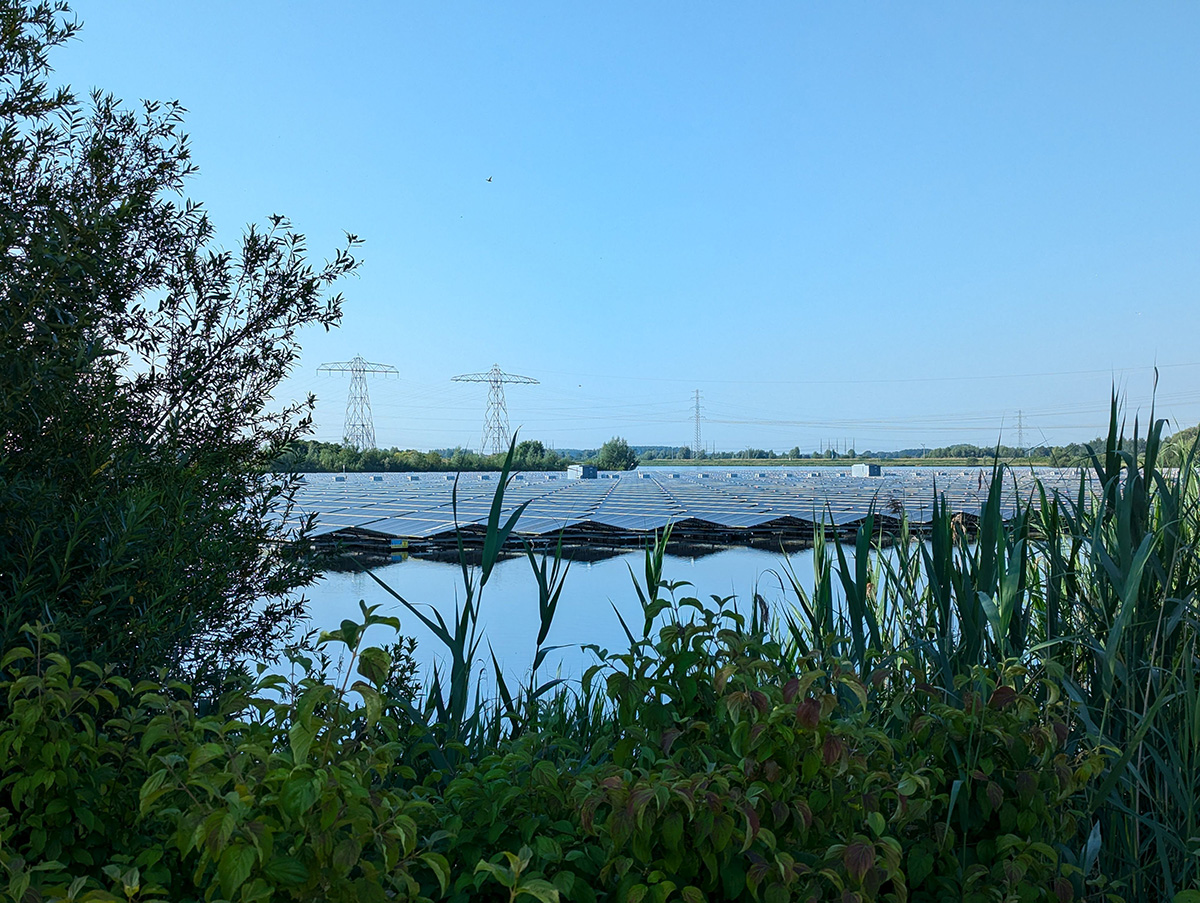| Duration: | 12/2024 - 11/2027 |
| Contracting Authority/ Sponsors: | This project was funded by the Clean Energy Transition Partnership (CETPartnership), co-financed by the European Union and the Federal Ministry of Economic Affairs and Climate Action (BMWK) |
| Project Partners: | Consortium:
Associated partners:
|
| Project Focus: |
STEWART – Research-Based, Environmentally Friendly new Layout for Floating Photovoltaic Systems
Sustainable and cost-efficient photovoltaic technology is crucial for fully decarbonized energy generation, the European Green Deal and a successful energy transition. As part of the STEWART project, an interdisciplinary and international team is working on the development of a scientifically sound and environmentally friendly concept for floating photovoltaic systems for the onshore and nearshore sector that integrates ecological, economic and regulatory aspects. The basis for this is the monitoring and simulation of the system performance during operation and its interaction with the water, including light availability, cooling and pollution. In addition, the effects of possible contamination of the PV modules by bird droppings and suitable avoidance measures are investigated.
The "STEWART" project has six specific main objectives.
- We aim to further develop a method for assessing the interaction between water bodies and the environment, particularly with regard to water bodies and birds. Here we rely on technical monitoring of PV power, PV modules and water bodies as well as bird observation.
- Our research aims to demonstrate a technical solution for a sustainable FPV concept that takes ecological and economic aspects into account. We will develop a design catalog and guideline that describes sustainable and nature-compatible FPV systems and incorporates legal constraints and ecological assessments.
- We will formulate formalized design principles and improved maintenance protocols. In addition, the task includes the creation of novel key performance indicators (KPIs) specifically for the evaluation of the environmental performance of FPV projects. Based on the experience of our project partners improvement measures will be proposed that are applicable to different environments and technologies.
- An important objective is to develop a tool for automatic pollution detection and carry out an experimental mitigation study for biotic pollution parameters, particularly with regard to birds. A demonstrator will be set up for this purpose.
- We will continue to develop a strategy to reduce maintenance costs and improve the system performance of FPV systems by focusing on environmentally friendly designs and predictive maintenance. This will ensure a percentage reduction in unplanned maintenance interventions.
- Finally, we plan to organize the collection of experience, information and studies on legislation at European and national level in order to create a sound basis for political decision-makers.

